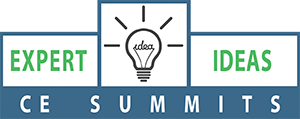12 Essential Year-End Tax Planning Questions
Complex new tax rules were introduced for 2018 and 2019. Tax accountants, wealth advisors, and taxpayers will need to follow the “after-tax lifeline” of an invested personal or corporate dollar with 12 planning strategies.
Prolific Knowledge Bureau thought leaders and advisors will share knowledge as advisors from all sides of the tax and financial services gather to collaborate in four cities this fall for the CE Summits. Mark your calendars! “Knowledge Bureau invites practitioners and specialists interested in drilling down on the most important year-end tax planning topics to attend sessions with Canada’s most knowledgeable thought leaders,” says Evelyn Jacks, President of Knowledge Bureau. “I am proud and honored to present with Larry Frostiak, Kim Moody and Jenifer Bartman, as we tour together to share knowledge with some of Canada’s best tax and financial advisors from coast to coast at this fall’s CE Summits.”
It’s an important time for high-net-worth individuals and, in particular, owners of small business corporations who have faced criticism for their wealth building. Now, there is additional complexity and new compliance tests from CRA auditors who are focused on tracing income distributed to family members, potentially in perpetuity. “High personal tax rates, new tax audit risk and uncertainty in taxation at the private corporation level, need to be understood and discussed before year-end, especially for families who invest in public and private corporations. The new rules are complex and affect succession planning too,” says Mrs. Jacks.
Answers to the following questions will be discussed:
-
How can you minimize personal taxes for family units as a whole with never-to-miss deductions and credits, and revisit critical investment strategies?
-
The lifeline of your dollar: Is it now better to accumulate capital in a corporation or personally?
-
How much will it cost over the long run to maintain the status quo?
-
Leaving your employer for the “gig economy”? How do you maximize severance packages and stock option benefits?
-
TOSI: Has CRA “transferred” a perpetual tax risk to any family member who receives compensation or dividends from your family business?
-
Trusts: Will ownership of shares in a trust now restrict your ability to split income with family members?
-
Passive Income: How can you plan to pay less, not more, tax when you accumulate wealth in a small business corporation?
-
How can you plan for alternative forms of remuneration for family members in your private corporation to minimize corporate/personal taxes in 2018 and beyond?
New Knowledge Resources: The materials to be provided to all students at the CE Summits will include PowerPoint slides with speaking notes, and a brand new desktop reference on this subject containing details on the technical materials discussed in this session.
Register online now or call 1-866-953-4769, to reserve your spot in the Fall CE Summits, November 2 in Winnipeg, November 5 in Vancouver, November 6 in Calgary and November 7 in Toronto. Stay tuned to Knowledge Bureau’s social media accounts and KBR for profiles of the speakers at this year’s live events – including the CE Summits and the Distinguished Advisor Conference.
Additional educational resources: Can’t wait to get your hands on the resources offered this fall? Purchase your copy of The Knowledge Journal for a 2018 Advanced Personal Tax Update. Also brush up on your skills by enrolling in the Advising Family Businesses certificate course, so you’re better prepared to effectively manage the needs of your small business clients. Earn credits towards a Knowledge Bureau Designation program or get a preview through the free trial.
COPYRIGHT OWNED BY KNOWLEDGE BUREAU INC., 2018.
UNAUTHORIZED REPRODUCTION, IN WHOLE OR IN PART, IS PROHIBITED.
 |
 |
 |
 |
|
Refer a Friend |
Research |
Calculators |
Course Trials |
 |
 |
 |
 |